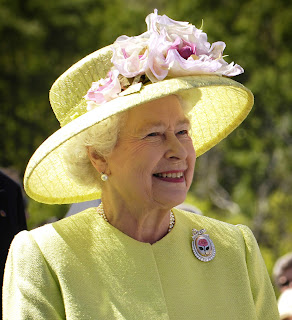Older adults who look inwards and reflect on life may be protecting themselves against dementia, according to a recent survey.
At present, the UK has some 850,000 with dementia, most of them in the older age bracket and it’s predicted the number could be up to 1.6m by 2040. The likelihood of developing dementia roughly doubles every five years after the age of 65.
It’s not clear what causes Alzheimer's – the most common form of dementia – but it is thought to be caused by the abnormal build-up of proteins in and around brain cells.
The NHS website explains thus: “One of the proteins involved is called amyloid, deposits of which form plaques around brain cells. The other protein is called tau, deposits of which form tangles within brain cells.
“Although it's not known exactly what causes this process to begin, scientists now know that it begins many years before symptoms appear.
“As brain cells become affected, there's also a decrease in chemical messengers (called neurotransmitters) involved in sending messages, or signals, between brain cells.
“ ... Over time, different areas of the brain shrink. The first areas usually affected are responsible for memories.
“In more unusual forms of Alzheimer's disease, different areas of the brain are affected.
“The first symptoms may be problems with vision or language rather than memory.”
So, if we don’t know what causes it (although we know what happens when we have it) we may have a lurking fear of developing it in the future.
That makes it an alarming prospect and anything that may help prevent us from getting it is to be welcomed.
I read advice such as not smoking, not drinking too much and eating a healthy, balanced diet. I also learn I have to exercise for more than two hours a week at a minimum and, even then, there’s no guarantee that I’ll be spared.
But this survey on self reflection and meditation seems to offer some positive and hopeful signs to allow us to work on keeping the mental part of our selves in the best possible condition, not just our physical selves.
The idea that just 10 minutes a day of self-reflection (that’s sophisticated speak for thinking about yourself, decisions you’ve taken, the outcomes and how they’ve affected you) is good for your brain is wonderful.
Those of us who work in the world of psychotherapy are pleased there’s an acknowledgement that reflection is good for the soul. This is what is behind a talking therapy – a 50-minutes session to look at your self and take stock of where you came from, where you are and where you’d like to be.
That’s in an ideal world of course. It’s always easier to spot what’s the problem with other people and less easy to find a way of dealing with your own. That’s where the personal therapy time comes in. If you’re working with a trained, interested – but dispassionate – psychotherapist or counsellor, you can come together to look at and consider how you really work. What makes you tick, in other words.
The belief is – and there’s evidence to prove it – that if a person wants to make a change in their life they will need to look at past behaviour and examine why it might be they are taking a path that is causing them so much distress. By committing to the therapeutic process and by wondering aloud and considering what compelled them to make some judgments, they stand a good chance of altering their habits to improve how they feel.
Self reflection, therefore, if done in the “right” way is a good way of changing the feeling process and turning away from negative thinking. For example, if you’re a person who looks back with anger, sadness or some other form of distress – or who maybe doesn’t look back at all for just those reasons – how about allowing yourself to look back without judgment?
True self reflection is observation, recognising the emotion that comes with it and accepting that’s how it was. No need to be cross or sad now, it’s pointless. But what you can do is learn more about yourself by looking at it from a distance and considering how it affects you now and if it’s made a difference. It will have done, but it might also have offered you opportunities of which you were glad. Self reflection is a chance to change how you feel about a past event or events and, when necessary, put them to bed. It’s a chance to give up the role of being your harshest critic.
How about looking back and simply reflecting? Remember the situation and look at it as an observer rather than in a punishingly judgmental way that makes you clench your fists, tighten your muscles and feel your jaw ache as you relive the distress. That is of no help. Negative thinking can worsen depression. Positive thinking is good for our us and we need to work on our optimism. Ditch the stress.
Socrates, the wisest of all philosophers who chose to give up his own life rather than back down on his principles, declared an unexamined life is not worth living. He believed we owed it to ourselves to examine within. Seems he was right all along. It's not self-indulgence, it's good for you. Have a try!
Photo 1: Faye Cornish on Unsplash
Photo 2: Milad Fakurian on Unsplash
Photo 3: Javier Allegue Barros on Unsplash












